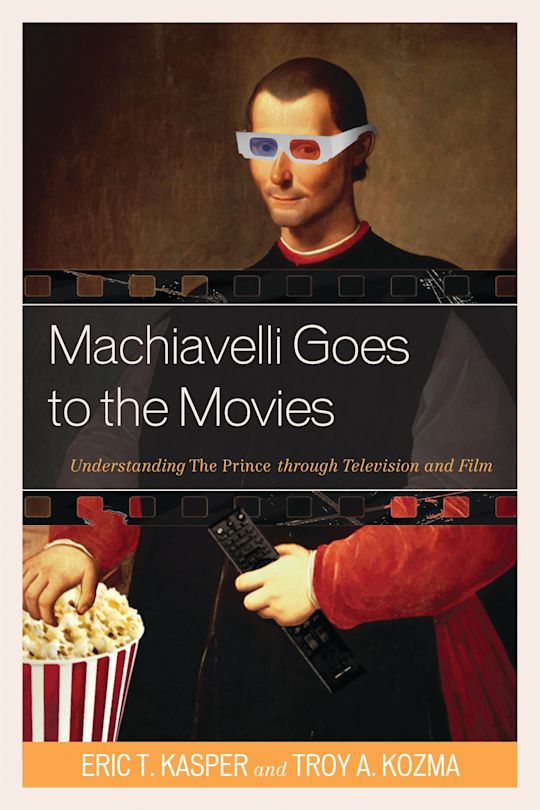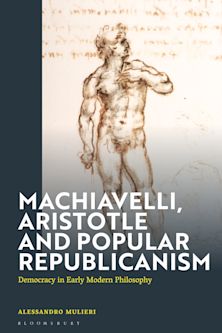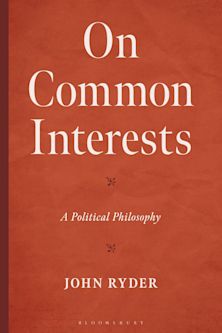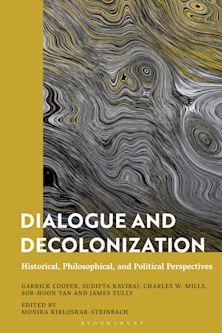- Home
- ACADEMIC
- Politics & International Relations
- Political Theory and Philosophy
- Machiavelli Goes to the Movies
Machiavelli Goes to the Movies
Understanding The Prince through Television and Film
Machiavelli Goes to the Movies
Understanding The Prince through Television and Film
You must sign in to add this item to your wishlist. Please sign in or create an account
Description
Niccolò Machiavelli’s The Prince remains an influential book more than five centuries after he wrote his timeless classic. However, the political philosophy expressed by Machiavelli in his tome is often misunderstood. Although he thought humans to be rational, self-interested creatures, and even though he proposed an approach to politics in which the ends justify the means, Machiavelli was not, as some have argued, simply “a teacher of evil.” The Prince’s many ancient and medieval examples, while relevant to sixteenth century readers, are lost on most of today’s students of Machiavelli. Examples from modern films and television programs, which are more familiar and understandable to contemporary readers, provide a better way to accurately teach Machiavelli’s lessons. Indeed, modern media, such as Breaking Bad, The Godfather, The Walking Dead, Charlie Wilson’s War, House of Cards, Argo, and The Departed, are replete with illustrations that teach Machiavelli’s critical principles, including the need to caress or annihilate, learning “how not to be good,” why it is better to be feared than loved, and how to act as both the lion and the fox. Modern media are used in this book to exemplify the tactics Machiavelli advocated and to comprehensively demonstrate that Machiavelli intended for government actors and those exercising power in other contexts to fight for a greater good and strive to achieve glory.
Table of Contents
Studying and Using History: Charlie Wilson’s WarCaress or Annihilate When Taking Power: The Godfather and Breaking BadNip Political Problems in the Bud: Charlie Wilson’s War, Primary Colors, and A Bronx TalePeople Accustomed to Freedom Will Seek It Again: Braveheart and Red DawnThe Difficulty of Introducing Something New and the Importance of Being Armed: The Untouchables and Charlie Wilson’s WarBribery and Dirty Work: Lincoln, Richard III,and Wag the DogThe Problems of Being in Charge without Prior Experience: Dave and Orphan BlackThe Use of Cruelty: Hoffa, Wag the Dog, and The UntouchablesReliance on the People: All the King’s Men and O Brother, Where Art Thou?Rally ‘Round the Flag: Wag the Dog, Braveheart, and The PatriotPower Can Be Exercised in Any Institution: The Da Vinci Code and The Manchurian CandidateKeep Your Own Army and Prepare It for War: Braveheart, Heat, Alexander, and Independence DayVices versus Virtues and Learning Not to Be Good: Scarface, The Godfather, The Departed, and Richard IIIMiserliness is Better than Liberality: Ghostbusters and The PatriotIt is Better to Be Feared than Loved: Band of Brothers, A Few Good Men, and A Bronx TaleDeception: The Godfather, Primary Colors, The Walking Dead, and Bob RobertsThe Lion and the Fox: The Godfather, Breaking Bad, Charlie Wilson’s War, The Usual Suspects, and ArgoPick a Side and Stick to Your Decisions in Politics: The Contender, Harry Potter, and House of CardsThe Need for Both Military and Popular Support: Lincoln, O Brother, Where Art Thou?, and Red DawnHonor Those with Talent and Hold Festivals: Gladiator, The Hunger Games, and House of CardsHave Only a Few Trusted Advisors and Give them Wealth so they Remain Loyal: House of Cards, Breaking Bad, The Departed, and Lord of the RingsVirtue versus Fortune: Election and Mad MenConclusions: Seeking Greater Glory
Product details
| Published | Mar 24 2015 |
|---|---|
| Format | Ebook (Epub & Mobi) |
| Edition | 1st |
| Extent | 216 |
| ISBN | 9780739195956 |
| Imprint | Lexington Books |
| Publisher | Bloomsbury Publishing |
About the contributors
Reviews
-
Machiavelli is one of the most famous philosophers of all time, and the advice he offers in The Prince is noticeably influential in politics and in popular culture. Through the lens of this book we see that we can also learn about Machiavelli through television and film. The chapters in Machiavelli Goes to the Movies piece together significant works of popular culture, and insightfully demonstrate their reflection of Machiavelli's ideas, and what movies and television can continue to teach us about philosophy.
Timothy M. Dale, University of Wisconsin-La Crosse
-
The devil. Old Nick. Teacher of evil. Murderous Machiavelli. Known by many infamous names, Italian philosopher Niccolò Machiavelli remains one of the most intriguing and frequently misunderstood political thinkers in history. Though it was called ‘poisonous’ by his contemporaries, Machiavelli’s The Prince, his most influential work, establishes a prescription for political realism that continues to frame discussion and policy today. In this book, Eric Kasper and Troy Kozma reveal why. Through movies like Lincoln, Harry Potter, The Godfather and The Hunger Games, and television shows like Breaking Bad, House of Cards and The Walking Dead, Kasper and Kozma bring The Prince to life and penetrate Machiavelli’s mystique. In the process, they offer deeper insights and reflections into Machiavellian thought as intriguing as The Prince itself. This book is a must read for anyone who wants to understand not just Machiavelli but power and politics laid bare through film and television.
Joseph J. Foy, University of Wisconsin Colleges
-
This book argues that the purported Machiavellian dictum 'the end justifies the means' is misrepresented by his reputation as a teacher of evil. According to the authors, even though Machiavelli does counsel the use of force and fraud without regard to ethical considerations, he does so in the service of the common good. It is true that political leaders sometimes need to act against the common good, but this extenuating advice is only meant for political leaders rather than ordinary citizens. Despite popular misconceptions about Machiavelli’s advice, the authors find abundant evidence to support their own interpretation of Machiavelli in popular television programs and films (almost 40 of them). The attempt to illustrate how Machiavelli’s thought pervades everyday lives raises interesting questions about distinguishing between ordinary human cruelty evident in antiquity and the 'common good cruelty' suggested by the authors. By considering why Machiavelli is so unique, readers are given the opportunity to begin to understand why a book like The Prince has withstood the test of time and even inspired a few private citizens to act like political leaders in order to achieve political power. Useful for faculty who have difficulty making Machiavelli’s scintillating and intrepid prose more interesting to students. Summing Up: Recommended. General readers and undergraduates.
Choice Reviews


































